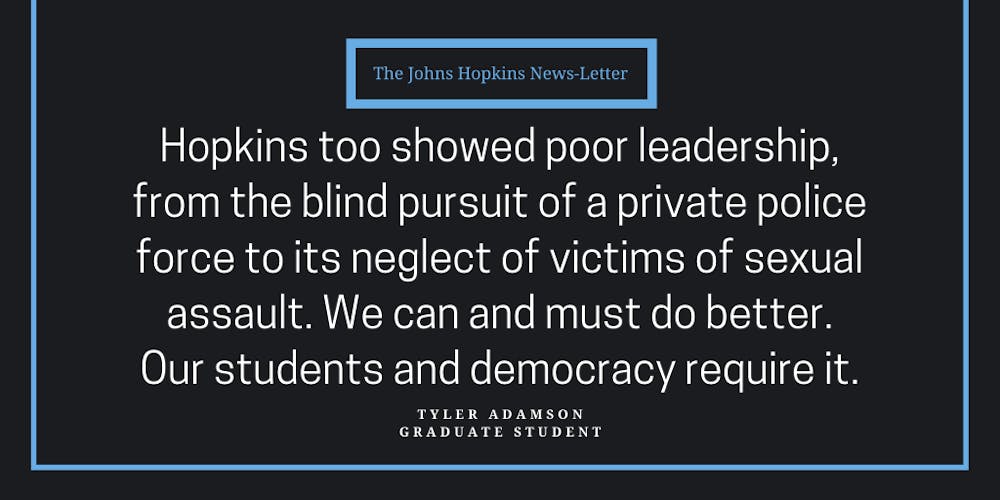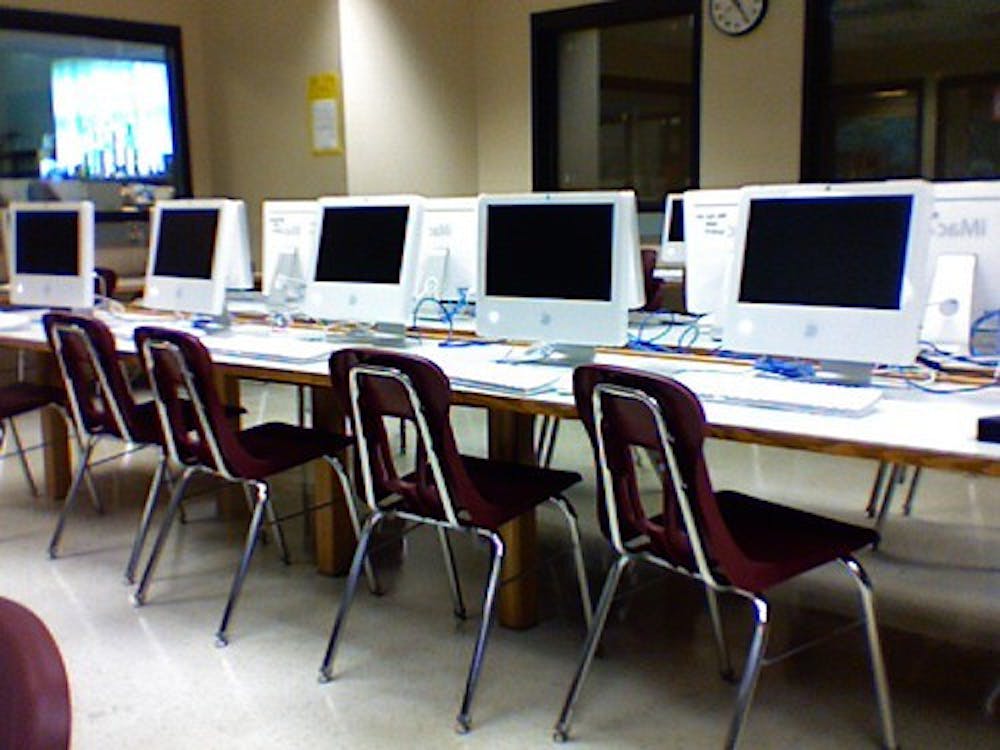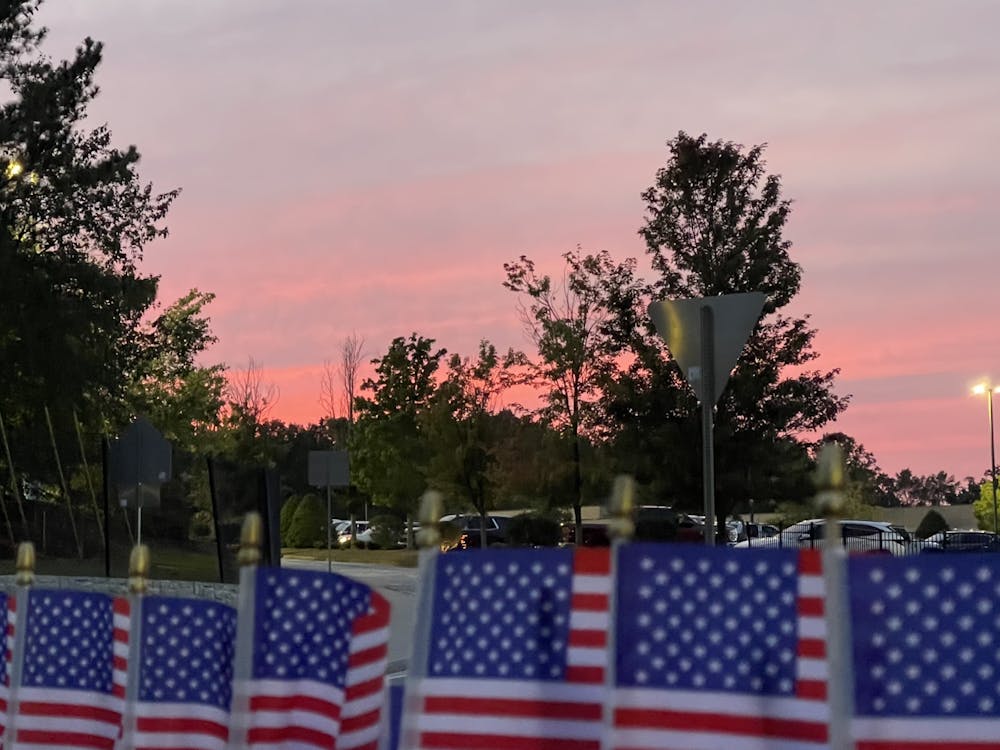The U.S. finds itself at the center of what is becoming a constitutional crisis with the potential to set precedent for generations to come. The animosity and tribalistic fog that pervades politics has been steeping for as long as I can remember.
From decades of widening economic inequality to corruption throughout all levels of government, it’s only reasonable that communities would be receptive to leaders who can scapegoat the “others” and shift the narrative away from themselves. Unfortunately, those same leaders often capitalize on this vulnerability for their own benefit.
Baltimore is no stranger to this issue. The last few mayors and several other city officials abruptly left office in a flurry of events ranging from self-dealing to racketeering.
Public news of such dealings largely focuses on elected officials, not on the private organizations who may also be accomplices. The University, a private organization, is no foreigner to such a role.
On Dec. 29, The Washington Post published an opinion piece penned by President Ronald J. Daniels regarding the current state of citizen engagement and the role that higher education plays in “training citizens.” He outlines his view that colleges are critical for developing an informed and engaged public. He emphasizes his belief that these institutions are not rising to the occasion.
Notwithstanding the subtle classist undertones, President Daniels goes on to highlight various programs around the country seeking to ameliorate this situation. He indicates that these are all the more necessary at a time when democracy demands it most. He goes so far as to describe “standards against which to hold policymakers and policies to account, and a disposition directed towards cooperation and action.”
Yet President Daniels completely neglects to disclose one thing: that he and the institution he leads are not foreigners to perpetrating actions antithetical to what he describes.
Speaking as a first-hand witness to the University’s pursuit of a private police force this past year, the duplicity in President Daniels’ recent lecture on democracy strikes like another blow to the delicate “constitutional glass” this country was founded on. The leader of an institution who paid off elected officials, overspent on lobbying and largely ignored and squashed student and faculty dissent should be barred from commenting on the role of universities in developing the next generation of citizens.
This “winner-takes-all” approach to governance he describes is what I interpret to be the current state of politics. The wealthiest yield the most influence and power. I believe that this is to blame for the erosion of confidence in our political institutions. It is also the progenitor to the distrust towards the government that we’re witnessing today.
But things are changing. Despite the rampant mistrust of government officials, people are becoming more politically active than ever. Instead of perpetuating these tactics, our education system should strive to develop stewards of communities, critical thinkers and above all, ambassadors of tolerance and cooperation. Its leaders must set that precedent.
Too many scandals are occurring with the leaders of prominent institutions in our community. The last two years featured the controversies with Baltimore Mayor Pugh’s Healthy Holly books and the University of Maryland football scandal. Hopkins too showed poor leadership, from the blind pursuit of a private police force to its neglect of victims of sexual assault. We can and must do better. Our students and democracy require it.
From its inception, our model of democracy has been the envy of countries throughout the world. At a time when that which has withstood for over 200 years is under attack, it is imperative that we cultivate our shared role in its defense.
From foreign influence in our electoral processes, to unchecked corruption and malfeasance, it is even more pertinent for those who have the privilege of developing the next generation to take the helm in its future maintenance. Neglecting to do so in exchange for personal or institutional gain is dishonorable and an affront to our system of governance.
Benjamin Franklin remarked in 1787 that we have “a Republic, if we can keep it.” If colleges and universities are to fulfill their role in its preservation, we must demand they set better examples in this collective pursuit. President Daniels and Hopkins are not exempt.
Tyler Adamson is a graduate student at the Bloomberg School of Public Health from Vancouver, Wash.





